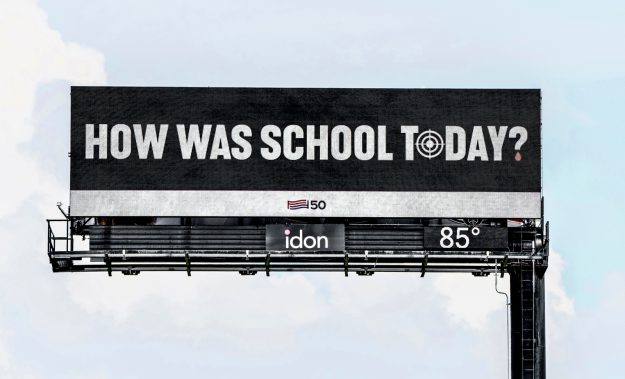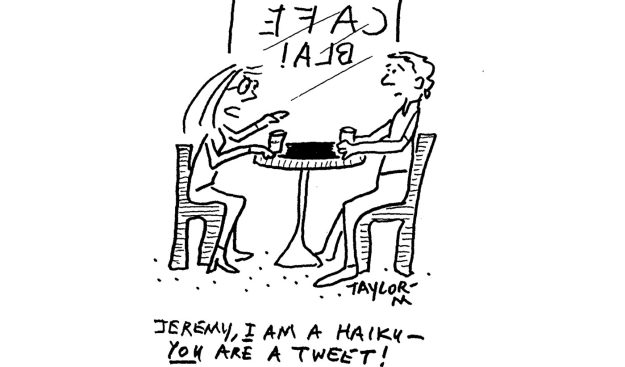I have been an avid consumer of Tricycle’s digital archive ever since a friend gifted me a subscription. I usually love the content, but Matthew Gindin’s “The Middle Way of Sobriety” (Trike Daily, May 2021) troubles me. I contacted the author directly to try to understand the intent behind the article. But I couldn’t escape the need to write to you all as well. Though the article has a caveat that it does not apply to substance use disorders, some of those with said “disorders” are in denial and refuse to give up the high. For them, the article could serve as “license” to use. As someone who, like the author, eschewed rule-following until it bit me in the proverbial rear end, I know there are consequences when it comes to intoxicants. As Thich Nhat Hanh said in a 1995 Tricycle interview, the precept to refrain is for the protection of self and others, including protection from DUI or the risk of violence against family, friends, or coworkers. The answer to the challenges of contemporary society won’t be found in giving ourselves an occasional and hopefully not disastrous (though we’ll never be able to know for sure in advance) “release valve” in the form of an intoxicant. But it might be found by using Buddhism to act as sober micro-peace emissaries in our daily lives.
Thanks in advance,
B.
Matthew Gindin responds:
Hi B.,
Thank you for reaching out to express your concerns about the article. I certainly sympathize with your concerns. As I write in the article, alcohol is “a relationship better not cultivated” that does untold social and personal harm, and its use conflicts with the ideal of mental sobriety I argue in favor of.
I take you to be saying you were troubled by my suggestion that immediate, total abstention might not be the path for everyone. You feel that abstention is the only proper standard, in line with the traditional Buddhist ideal in many lineages.
The argument in my article could be summed up this way: “We should strive not to intoxicate ourselves with alcohol or anything else, but in practice many of us do in fact do so. How do we get from here to there?”
What I counsel in the article is that we begin with being honest about when and how we are self-medicating with alcohol or other quick fixes and begin taking what steps we can to make healthier choices. As I wrote there, sometimes one can mindfully watch the urge vanish and find that one is more free than one thought, but sometimes realistic, humble baby steps are better than an idealistic black-and-white position. As tempting as such a stand is, in practice it can actually be counterproductive. It can lead to people abandoning the precept altogether—which is common in Buddhist circles, at least in the West—or to repeated crash-and-burn episodes as one tries to maintain absolute purity.
What I try to suggest in the article is a way to know our limitations and gently free ourselves. While some may take that approach as license to drink, that would be contrary to the intent of the article. In fact I’m happy to say I received a number of letters from people telling me that the article helped inspire them to new efforts to be free of alcohol and other intoxicants. That was my intention: to remind people why we want to be free of intoxication and to inspire them to try to move in that direction, even if total abstention is not a realistic stance as of yet.
It is worth repeating that the article is not meant for people struggling with serious substance abuse disorders, who need to seek support and medical treatment. In that respect, it is no different from teachings that counsel immediate renunciation of all intoxicants.
Yours in the dharma,
Matthew

I have never been more disappointed in Tricycle than I was when I read the article “Drips on a Rock” [on Shannon Watts’s campaign against the gun lobby] in the Spring 2022 issue.
I’ve thought about it a lot. I thought of unsubscribing to Tricycle, but I get so much value from it that I don’t consider that an option. However, the article did convince me that I can no longer consider myself a Buddhist in America.
Why? To me, it appears that Buddhism in America is for all practical purposes entirely captured by and a subsidiary of the political Left. To me, this is analogous to how Buddhism in Japan was captured by Japanese nationalism prior to World War II.
As a Libertarian, I have long been troubled by how Buddhist teachers use their platform to promote their own political beliefs and denigrate those with whom they disagree. It has taken me decades to get clear about this and be able to distinguish when they are promoting timeless wisdom and when their own beliefs (and possibly even anger and hatred) slip into the mix. To me, “Drips on a Rock” epitomized good/evil thinking.
—Paul Norris,
San Francisco
James Shaheen responds:
Thank you for taking the time to write. I’m happy to hear that you find value in the magazine and that you will continue to subscribe. In an increasingly polarized world, a willingness to engage with positions you find problematic or even offensive is laudable and rare.
Shannon Watts is a leading voice in the national conversation around gun violence. She also happens to have a Buddhist practice. As the editor of a Buddhist magazine, I am naturally interested in how her practice inspires and sustains her work.
Our aim from the beginning has been to provide teachings that help one navigate samsara.
You may not agree with Watts’s politics or mine—and yes, most (but not all) of our contributors skew liberal—but beyond the politics of this issue we share a genuine desire to end the horrific violence that has led to so much despair. That is certainly a place where we can meet.
Our aim from the beginning has been to provide teachings that help one navigate samsara with some degree of equanimity and compassion. As you no doubt know, people who find themselves at odds have abandoned one another over disagreements of far less consequence. Thank you for sticking with us.
—James Shaheen,
Editor-in-Chief

I can’t thank Mark Epstein enough for his article in the new summer edition of Tricycle, “How Meditation Failed Me.” I have been a Buddhist and meditator for over fifty years and a lifelong stutterer. Your description of sitting in the classroom at the beginning of the year and anxiously waiting your turn to say your name hit home. I had the same experience and anxiety each year growing up in Queens and going to PS 145. It was like you were telling my story. I was relieved to hear I wasn’t alone, having had that challenge. Perhaps my following the dharma and being a stutterer have been intricately connected. Thank you so much for the excellent and brave piece you wrote. It was healing for me in so many ways.
—Stanley
♦
To be considered for the next issue’s Letters to the Editor, send comments to editorial@tricycle.org, post a comment on tricycle.org, or visit us on Facebook, Instagram, or Twitter.